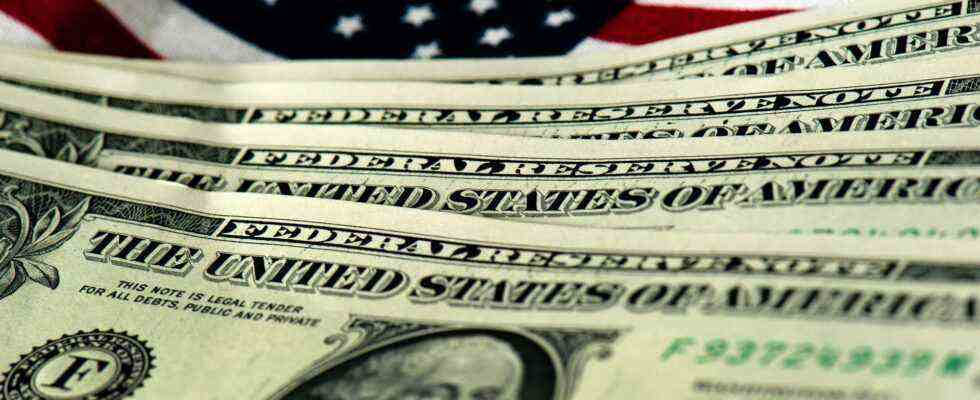Status: 12.01.2022 6:40 p.m.
Everyday life is becoming more and more expensive not only for Europeans, but also for Americans: US consumer prices rose by seven percent in December. Has the climax now been reached?
Whether for rent, used cars or even Christmas gifts – many Americans had to dig deep into their pockets in December. In the final month of 2021, consumer prices rose a whopping 7.0 percent, according to the U.S. Department of Labor. That is the highest increase in almost 40 years. In November the rate of inflation was 6.8 percent. Economists, however, had expected prices to rise at this level.
Highest annual inflation since 1990
The prices for used and new cars rose particularly sharply. Hotel stays also cost significantly more. There was only some relief in terms of energy prices: oil and fuel prices fell. The much-noticed core rate, which does not take into account volatile energy and food prices, climbed from 4.9 percent in November to 5.5 percent. Economists had predicted an increase of only 5.4 percent. Overall, the inflation rate was 4.7 percent in the past year: it reached its highest level since 1990.
The inflation data is increasing the pressure on the Fed. Because the overall rate is well above its inflation target of two percent, the US Federal Reserve has to act quickly. The monetary authorities had already announced several weeks ago that they would end their bond purchases by March to support the economy. In addition, the Fed is planning a turnaround in interest rates soon. Recently there has been speculation that it will come sooner than planned. Some Fed members spoke out in favor of an initial rate hike as early as March. At the Senate hearing yesterday, Fed President Jerome Powell left it open exactly when the first rate hike should take place. At least three rate hikes are now expected on the markets this year.
Peaked?
Whether inflation has now peaked or whether it will continue to rise in early 2022 is a matter of dispute among economists. “The inflation rate is still unlikely to have peaked,” says Commerzbank economist Christoph Balz. However, he expects only slightly higher rates in the next few months, as the surge from energy prices subsides.
Thomas Gitzel, VP Bank’s chief economist, is preparing for lower inflation rates. “In the coming months, the US inflation rate will go into reverse, even without the intervention of the US Federal Reserve,” he believes. The decreasing base effect in energy prices alone ensures this. “So the question is not whether inflation rates will fall, but at what level they will settle.”
Wage increases continue to put pressure on prices
In the opinion of Dirk Chlench from the Landesbank Baden-Württemberg, the price increase will decrease somewhat in the course of the year as a result of the expiring Corona special effects and the absence of further oil price surges. “However, the accelerated wage increases in view of the low unemployment rate are likely to stand in the way of a clear relaxation on the price front.” For the full year 2022, he expects consumer prices to rise by 5.0 percent.
In the forex market, the US dollar came under pressure after the data was released. The dollar index, which tracks major currencies, fell 0.6 percent to a two-month low of 95,087. The euro rose to a daily high of $ 1.1415. The prices of US Treasuries rose.
The stock exchanges reacted calmly to the high inflation. On Wall Street, the US standard value index, the Dow Jones, advanced 0.1 percent. The DAX rose by 0.4 percent. “Seven percent inflation, so what?”, Asked analyst Konstantin Oldenburger from the online broker CMC Markets. “The data only confirmed the market’s expectations that the US Federal Reserve will soon raise interest rates.”
5.3 percent higher inflation in Germany
By way of comparison: In Germany consumer prices rose by 5.3 percent in December, the highest they have been since 1992. In the annual average of 2021, the rate of price increase was 3.1 percent. That is the highest increase in over 28 years. Economists anticipate a slight easing in consumer prices at the beginning of the new year due to the base effect, but inflation is likely to remain high over the long term. “It is time for the European Central Bank (ECB) to take its foot off the gas,” said Commerzbank chief economist Jörg Krämer. The ECB still considers high inflation to be a temporary phenomenon.

